March 6, 2020
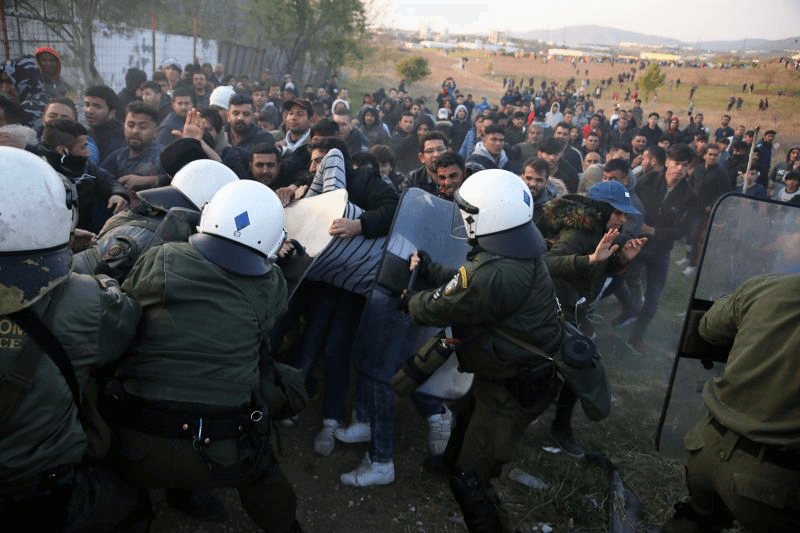

After a long week of violence, the presidents of Turkey and Russia came together Thursday, announcing an immediate cease-fire in the Syrian region of Idlib. The deal freezes the conflict lines where there are, not requiring the Syrian government to give back the land that they have won in recent months. The skies were clear Friday, but with no specified way to enforce the truce, whether Assad’s forces will respect the ceasefire is still unclear.
The Syrian government’s efforts to take back the last rebel stronghold escalated into a barrage of airstrikes during the past weeks, drawing in Russia and Turkey to protect their allies. Some residents of Idlib have reacted positively to Turkey’s military operations, hoping that they can relieve the Syrian people of their suffering, while others are worried about the high humanitarian cost of the invasion.
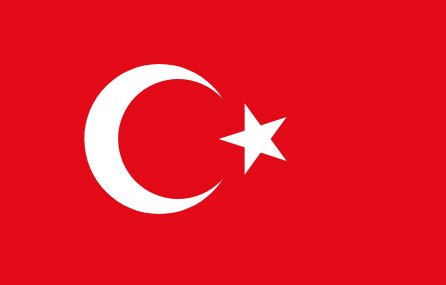
As thousands of migrants stream across the Turkish-Greek border, they have faced violence from border police instead of the smooth crossing that President Erdogan promised. Greek riot police have used tear gas and water cannons to keep refugees from entering their country that they insist is still closed. EU member nations are worried that this new spat will revive the debates surrounding immigration that rocked the continent five years ago. The group pledged €700m in aid to Greece, calling the country “Europe’s shield.”

Representatives from the US and the Taliban signed a deal aimed at ending the war in Afghanistan. The agreement, coming after months of negotiations, sets up a way for American and NATO troops to gradually leave the country over the next 14 months in return for a “permanent and comprehensive ceasefire.” The deal also sets up intra-Afghan negotiations on the future of the country. Despite its passing, the deal has not had any impact on the current violence. On Monday, the Taliban resumed its normal military action against Afghan forces, prompting the US to launch an airstrike to defend its allies.

A new report has found that Sudan security forces “systematically planned and coordinated” the attacks on protesters last June that have become known as the Khartoum massacre. Sudanese authorities are being accused of purposefully arming police officers and targeting medical facilities in the month before the protest that left 241 dead. This contradicts the government’s previous statement that the attack was the work of rogue military personnel acting spontaneously.

As the number of people affected by the new coronavirus nears 100.000, all parts of the world and sectors of the economy are feeling the effects. Mainland China is now no longer the main focus of the outbreak, with countries such as South Korea, Iran, and Italy seeing surges in cases. Still, China is struggling to rebound. Canceled exams are making it hard for university students to study abroad and sporting events are having to be played to empty stadiums.

Because of the ongoing economic crisis, experts are unsure if Lebanon is properly equipped to handle the spread of COVID-19. The country must pay more than $1.2 billion worth of Eurobonds on March 9th. However, a new report showed that the majority of Members of Parliament oppose making the payment, even if it will result in default. The cabinet is set to meet on Saturday to make the final decision on repayment.

A UN-sponsored report revealed that Iran has tripled its stockpile of enriched uranium since November, directly violating the 2015 nuclear deal. The Joint Comprehensive Plan of Action capped its stockpile at just over 200 kilograms of uranium, but the country currently has over 1,000kg, enough to make a nuclear weapon. Iran has been slowly violating various parts of the deal ever since the US pulled out of the agreement two years ago, likely in an attempt to have the global community reconsider its sanctions.

North Korea’s military ?launched two short-range missiles? Monday, completing its first weapons test since last November. Much of the international community has condemned the attack, including members of the Security Council, for violating denuclearization treaties. The test also served as a rare public appearance for Kim Jong-un as he locked down the country in light of the coronavirus. There have still been no confirmed cases of the virus in China’s neighbor, but experts are still debating the likelihood of that being true.
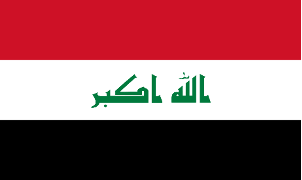
Prime Minister candidate Mohammid Allawi has officially withdrawn from the upcoming election after Parliament rejected his cabinet once again. His withdrawal has “deepened a political crisis in the oil producer, where mass protests and deadlock between lawmakers are delaying the country’s recovery from years of war.”
Protestors took to the streets on Thursday to block intersections and roads “to denounce the mechanism of choosing a candidate to form the next government.” The demonstrators were demanding that their needs be met, which includes” expediting the nomination of an independent candidate to form the next government.”

Maduro supporters brandished weapons at a march led by Juan Guiadó on Saturday, the latest spat between the two men who both think that they are the rightful leader of Venezuela. A 16-year-old demonstrator was injured.
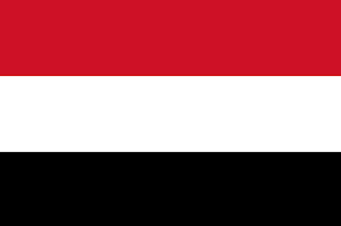
Houthi rebels took control of Hazm on Sunday “in a major blow to the internationally recognized government and the Saudi-led coalition that backs it.” As the rebels gain more ground, they are imposing draconian rules to police women; they are controlling where women can go and what they can wear. They have also started to carry around scissors to ensure that men’s haircuts are appropriate.
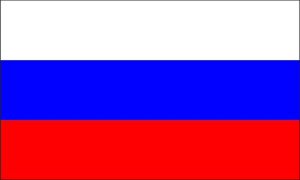
President Vladimir has proposed an anti-gay marriage amendment in the new constitution. The amendments will be voted on publicly. The drafting of a new constitution is being looked at “as a move by Mr. Putin to keep a hold on power after his presidential term ends in 2024.”
Also: A new UN report has directly accused the Russian government of committing war crimes in Syria.

On Wednesday, Hong Kong’s High Court ruled that banning same-sex couples from public housing in the city is unlawful. Originally, the Housing Authority refused to house same-sex couples “because there is already insufficient accommodation for low-income Hong Kong residents, and that LGBT people could still apply for housing as individuals.”

After the International Monetary Fund failed to renew its loans to Zimbabwe, President Mnangagwa made a passionate plea for support from international donors to save his country. After visiting last week, the IMF expressed concern, calling the country’s current policies “off-track.” They join the World Bank and African Development Bank in cutting off Zimbabwe’s aid. The country is not only facing $8 billion in foreign debts but also rising poverty and starvation levels.

On Thursday, the United States enacted “sanctions on the Nicaraguan National Police over accusations of human rights abuse.” The sanctions keep Americans from carrying out any business with the police and they also freeze all US assets the police hold.

Former President Evo Morales has expressed his confidence that his party will win the upcoming May elections. However, he is also fearful of a coup or fraud following the election. Morales will not be running in May, but he has endorsed his former economy minister, Luis Arce Catacora.
Chile:
Santiago saw the worst night of anti-government protests on Monday as protesters clashed with the police. The police reported that they arrested 283 civilians. Since October, more than 30 protesters have been killed and some 180 minors have been held in preventive detention by the police.
Israel:
After the country’s third elections in the past year, Prime Minister Benjamin Netanyahu beat out his opponent Gantz but fell three seats short of the majority he needed to form a new government. He faces bribery and corruption trial next week but remains popular among supporters. The Arab Joint List won 15 seats reaching a historical record.